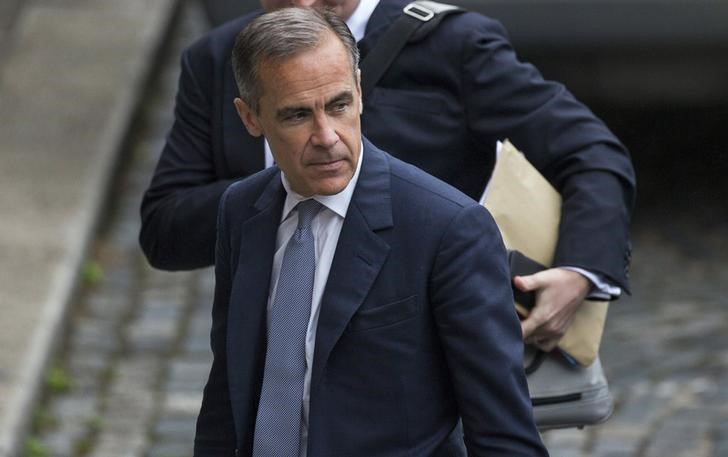Investing.com – As global markets faltered on Thursday over Brexit jitters, as a vote to leave the European Union (EU) in the U.K.’s June 23 referendum is known, analysts predicted that the Bank of England (BoE) could be forced to cut interest rates as early as the following day.
Just seven days before Britain decides if it will remain a part of the 28-member bloc, a string of polls this week had shown the “Leave” camp taking the lead over those wishing to remain.
ING warned on Thursday that the BoE could be forced into an emergency rate cut on Friday, June 24, if the referendum resulted in a Brexit.
Though these experts noted that currency weakness would likely result in an increase in inflation, they argued that, like in 2011, the BoE would focus on growth risks and financial market turbulence which would likely dampen domestic price pressures over the medium term.
“Consequently, we expect a 25 basis point rate cut on June 24,” they concluded.
The note to clients arrived as the BoE decided to keep monetary policy on hold on Thursday and repeated its warning that the possibility of a Brexit was "the largest immediate risk facing U.K. financial markets, and possibly also global financial markets."
Interest rates in the U.K. have remained at a record low of 0.5% since March 2009 despite the fact that the BoE, not much unlike the U.S. Federal Reserve (Fed), had warned that it would eventually return to a path of policy normalization.
However, concerns over global economic conditions had thrown a wrench into central bankers’ intentions to remove extremely accommodative monetary policies.
BoE governor Mark Carney warned as far back as June 2014 that “there's already great speculation about the exact timing of the first rate hike and this decision is becoming more balanced. It could happen sooner than markets currently expect.”
Yet a full two years later, and unlike the Fed that put its foot tepidly in the water last December, the BoE had yet to embark on policy tightening.
While the U.S. central bank was forced on Wednesday to back-step and lower its own expectations for rate hikes precisely in part due to worries over the impact on global markets of a Brexit, so too the British monetary authority saw its hand stayed.
Though policy makers worldwide had expressed concerned over the possibility of the U.K. voting to leave the EU, it was far from the only headwind stopping central bankers from returning to policy normalization.
In the case of the BoE, markets do not expect a rate hike until 2017 at the earliest, even if the June 23 referendum returned a vote to remain in the EU.
Analysts at RBC suggested on Thursday that, even if the U.K. decided to stay, the return of economic activity could be underwhelming.
“So, whilst in that scenario our central case is for a 25 basis point bank rate hike in February 2017, the skew of risks is now clearly to a more dovish profile rather than a tightening in 2016,” they said.
In any case, London’s FTSE 100 hit lows not seen since February during Thursday’s trade and the pound dropped to a two-month low against the dollar even as the BoE warned that "it appears increasingly likely that, were the U.K. to vote to leave the EU, sterling's exchange rate would fall further, perhaps sharply."
Hence, investors’ nerves were evidently on edge and traders in London were busy preparing for all-nighters after polls close late on June 23.
Though Carney was apt to expound upon the danger of a Brexit in a speech at the Mansion House scheduled for Thursday at 20:00GMT, or 16:00ET, tension was expected to remain high until the U.K.’s decision on its EU membership becomes clear and global markets react.
